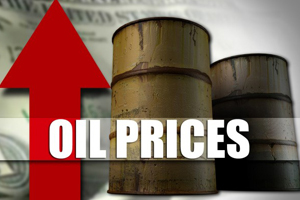Oil price climbs on Iran-US tension
 Oil prices surged yesterday on the back of better than expected economic data and mounting tension between the US and Iran.
Oil prices surged yesterday on the back of better than expected economic data and mounting tension between the US and Iran.Brent crude closed the day at $112.27 a barrel up $4.89, while US crude also rose by more than $4 to nearly $103 a barrel
The spike in prices was driven by the publication of encouraging economic data in the US, China, India, and some eurozone countries, which sparked optimism that 2012 could deliver a better than expected economic recovery.
However, it was also fuelled by reports that relations between Iran and the US have deteriorated still further after an Iranian army chief warned a US aircraft carrier not to return to the Persian Gulf.
The warning came at the end of a 10-day Iranian naval exercise near the strategically important Strait of Hormuz, which included a controversial missile test and was apparently designed to demonstrate Iran’s ability to close the critical oil passage if the US and the EU continue to pursue tough new sanctions against the country.
The US responded by stating that it would continue to deploy ships in the gulf, paving the way for further tension.
The Strait is hugely significant, with a sixth of world oil exports said to pass through it each day.
The spike in oil prices will further fuel concerns that oil prices are likely to stay above $100 a barrel for much of the year. A recent poll of analysts by Reuters predicted Brent would average $105 a barrel this year, down fractionally on 2010’s record high of $111 a barrel.
Analysts have also warned that on-going tension in the Middle East means the oil price is likely to remain volatile.
The high oil price will increase pressure on businesses to enhance fuel and energy efficiency and strengthen the case for investment in renewable and green technologies
You can return to the main Market News page, or press the Back button on your browser.

